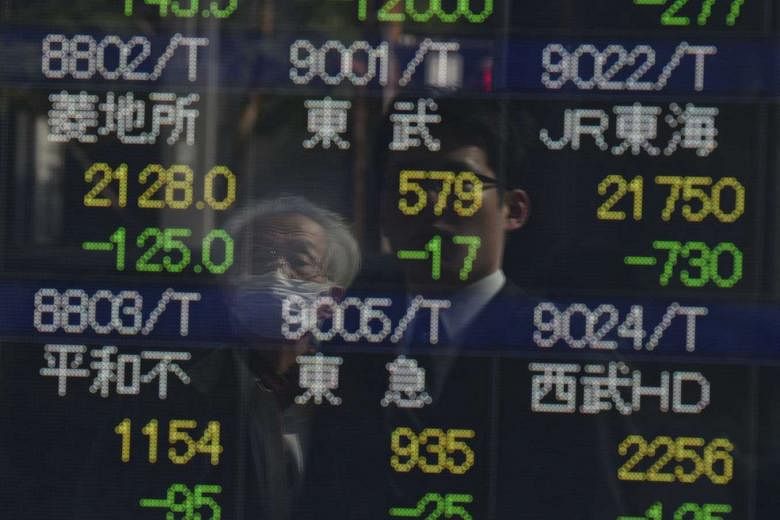Landmark events have occured during Monkey years. What does this year hold?
By Achara Deboonme
The Nation/Asia News Network
Yes, all of us remember the tsunami in 2004 that killed over 200,000 people.
But how many recall that the European Union was launched in 1992?
Or that in 1968, the Hong Kong flu pandemic killed as many as one million worldwide.
In 1920, the first Olympic Games since the end of World War I saw peace celebrated with the release of white doves. In 1944, the Allies invaded Normandy.
So what will this Year of the Monkey be remembered for?
Hong Kong feng shui master Ronald Lo offers a few clues on his website.
He starts by pointing out that this year is dominated by two elements, with "yang" fire sitting on top of Metal.
He adds that the Chinese calendar of Heavenly Stems and Earthly Branches runs in 60-year cycles, meaning that we experienced the same yang fire Monkey year in 1956 and before that in 1896.
What happened 60 years ago?
The most talked-about event was the Suez crisis, an international tussle over the canal that saw it closed for months and caused decades of geopolitical ramifications.
To Lo, it was a year of conflict.
But he also expects something positive from the Fire Monkey, particularly in the entertainment business.
He notes that yang fire symbolises the Sun, generating a sentiment of optimism and happiness that should make it a favourable year for the "glamorous" industries.
The year 1956 brought major success for big stars such as Elvis Presley, Marilyn Monroe and Doris Day.
Yang fire is also good for the economy, as "the fire element is often the driving force behind the stock market".
Fire years like 2006 and 2007 drove the stock market, Mr Lo says.
The fire element was missing in 2008 and 2013, when the market turned bearish.
Things improved in 2014 when the fire element returned.
"The yang fire in 2016 is still positive for the economy and the optimism continues to bring confidence to buy. This positive fire energy will continue into first half of 2017, which is also fire showing up in the Heavenly stems," he writes.
In 1956 the Dow Jones Industrial Average closed above 500 points for the first time. Last Friday, it closed at 16,204.97.
What will boost the market this year?
At a glance, there are a few bright spots.
The US economy is expected to maintain its recovery momentum while the crisis in the euro zone should ease after several bad years.
Yet China's slowdown and clumsy policy handling have caused headaches for fund managers worldwide, leading to a bad moment for global stock markets in January.
But for the Bank of Japan's (BOJ) introduction of a negative interest-rate policy late last month, January could have been a disastrous month for investors.
In our globalised world, Thai markets were not spared the volatility.
In mid-January, Tisco Securities predicted the SET Index could fall to 1,200 points in the first quarter, citing China's economic shrinkage, volatile oil prices and downward revision in listed companies' earnings.
Thanks to the BOJ's decision, the index recovered and ended last week above 1,300 points.
Krungsri Asset Management expects an improvement by the end of this year, projecting the SET Index will stand at 1,432 points - 11 per cent up on the 1,288 points it posted at the end of 2015.
That's not bad, though not a return to the heights of 2014. Notably, in 2015, the index lost 14 per cent on the previous year.
Yet, Krungsri also predicts great volatility in the Year of the Monkey, with the index veering in a wide range of 1,200-1,550 points.
Speaking at an event hosted by Krungsri Asset Management in Bangkok last month, Mr Tai Hui, chief market strategist of JP Morgan Asia, said the European Central Bank would keep printing money until 2017 and "all this liquidity will need to find a place to park, to invest".
He was right to anticipate more monetary easing in Japan. And he was adamant that, given risks and challenges, economic growth in 2016 would be respectable but not spectacular.
So, which stocks will gain in value?
Mr Ricky Tang, associate product manager of Schroder Investment Management, said export-oriented companies would still suffer, while domestic consumption is expected to remain gloomy due to high household debt - which meant stocks with good dividend records were recommended.
He added that in the past 30 years, 63 per cent of returns from Asian stocks came from dividends, and high-dividend stocks here are still lagging behind those in the US and EU.
These are the safe bets amid global uncertainties, where China's policy errors demonstrate the key risk for world markets.
It will be a tough year for stock-market investors, as the fire Monkey could prove very naughty.
But according to Lo, the Monkey could have something nice in store for everyone.
The feng-shui expert notes that during 2013 and 2015, fire and earth elements prevailed.
"Fire" governs the circulation of the blood, carbohydrate, energy and sugar while "earth" concerns the stomach and muscles - ingredients that meant people gained weight more easily during those years.
In contrast, this year of "fire" melting "metal" makes it good for exercise, watching your diet and losing weight, he said.
If the Monkey's joy doesn't succeed in driving up the markets, investors could end up financially skinny too.
Whatever, happy Lunar New Year to everyone!

